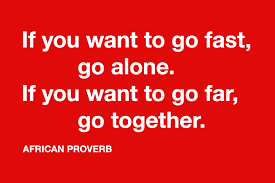In June 2020, the Modi
government launched an auction of 39 coal blocks in the country. Enormous areas
of forests and farmlands were auctioned off to the corporate sector for mining.
The livelihood of thousands of poor people was taken away from them by the proposed
mines. Worse, the entire ecological system of the country would be ravaged.
“Respect for
nature is an integral part of our culture and has been passed across
generations,” Modi was exhorting the nation while his friend Adani was getting
his bulldozers ready to clear forests and farmlands for mining. “Protection of environment
comes naturally to us,” Modi said while his government was selling the
environment wholesale to the corporate sector.
“Can greed
ever be green?” The
Guardian asked once while
discussing ‘Capitalism v environment’. Capitalism is all about profit. Profit
before all else: before people, before environment, before the nation itself.
The capitalist economic system has been thriving on exploitation of nature and
people. It has now become unsustainable. It has breached several ecological
boundaries. It has brought in disastrous climate changes. It has led to the
extinction of thousands of species of organisms.
The system
has to change if we want to save the planet. There has to be a shift from the
government serving corporations to a government that serves the people. Political
power should not be moving into a Central Vista anymore. It has to move out to
the people who actually work with the planet: the farmers and the fishers, the
forest dwellers and the road builders. A lot of decisions have to be taken at
the local levels.
Whenever
power can reside at the local level, it should reside there. That’s what the
principle of subsidiarity is all about. That principle demands that we respect
the cultural diversity of the country which has its own local ways of
protecting the planet. All our efforts to create a homogenous culture [One
country, one culture, one religion, one language!] rebel against the very survival
of the planet which thrives on diversity.
We desperately
need a paradigm shift. Capitalism and its individualism have to give way to some
cooperative vision that upholds harmonious relationships, particularly one
between humans and the nature. We need an alternative system which, in the
words of Fritjof Capra, “understands that life, from its beginning more than
three billion years ago, did not take over the planet by combat but by
networking.”
By networking,
Capra means relationships. Sustainability has nothing to do with the Forbes
list of billionaires. Those top rankers there are lonely people. Sustainability
is about communities of organisms that live in harmony together. It is about
cooperation, not competition. It is about mutual support, not aggression and
conquest. It is about inclusiveness, not drawing more and more boundaries. And
most of all, it is about integrity, not glib talks.
PS.
This post is part of Blogchatter’s CauseAChatter
Read also: Climate
Change: the problem


Hari om
ReplyDeleteOnly applause from me on this one!!! YAM xx
🙏 Thank you.
Delete